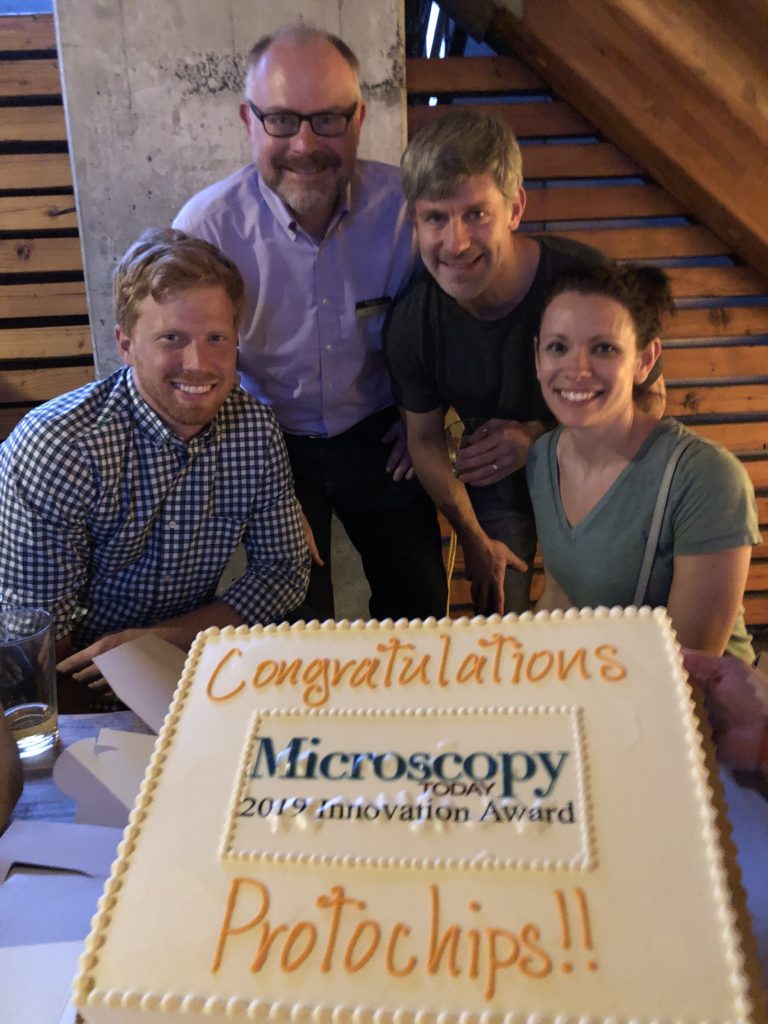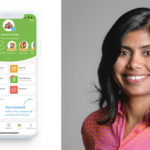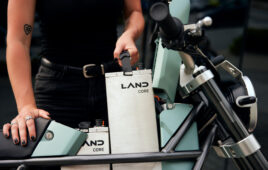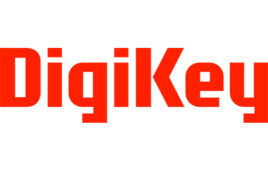
Jennifer McConnell, Product Manager at Protochips.
Jennifer McConnell is a Product Manager with Protochips B.S. Chemistry and a Masters in Forensic Chemistry. Protochips is a microscopy solutions provider that maximizes the electron microscope’s resolution capabilities to give scientists, engineers, and researchers the ability to perform dynamic quantitative nanoscale analysis.
Here is what she shares with DW about she evolved her chemistry background to work with other engineers outside her field and what it took to get there.
What first drew you to engineering? When did you know you wanted to be an engineer?
I actually stumbled upon the engineering world and didn’t realize how much I would love it. My background and experience is in chemistry, forensics specifically. When it came time for a change, I was looking for an experience outside of the laboratory, but with a little bit of familiarity (ties to chemistry/science). As I began my new role as a product specialist and quickly grew into a product manager – a role I never knew existed – I found an amazing and fulfilling combination of the science I love and a new world of engineering, design, and product development where I could utilize skills I had but also learn and grow many new ones. The products we develop have a major impact on important research areas like green energy and drug delivery, and having a hand in that makes this role even more rewarding. I have held this role for about 2.5 years now, so I am still new to the industry but have already learned so much.
Were there any influential engineers who helped shape your decision to become an engineer? If so, who and why?
Even though a career related to engineering wasn’t in my original plan, there were several key people in my life who were engineers and inspired me to go into a STEM field. Two of the biggest influencers were my grandfather, an electrical engineer, and my step-mother, a software engineer. They were challenged (in a good way), they were respected, and they were fulfilled in their careers, and I admired and wanted that. My step-mom, in particular, was such a strong influence on me. She was outgoing, opinionated, confident, smart, her laugh was contagious, everyone loved her, and this was everything I wanted to be. I was quite the opposite when I was younger: shy, quiet, easily intimidated, cared way too much about what others thought about me. Seeing her success in a role as a software engineer, which, in my youth really did seem like a “boy job” to me, stuck with me. If she could do something like that, then I could do anything, right? She inspired me to pursue the track I really wanted, which was to be a chemist at the time, despite my father joking around and saying “you will never graduate with that degree, you will change it before you are done. That’s too hard.”
For the record: I did finish that degree, went on to get a master’s degree, and worked for the most experienced group of methamphetamine researchers in the country at the DEA, tracking trends, training law enforcement, and aiding in the taking down of clandestine laboratories domestically and internationally

Protochips team receives Microscopy Today’s 2019 Innovation Award for their Atmosphere Catalysis Solution.
Describe your involvement in a research or design project. How did you better your team?
As a product manager, my role isn’t so much to engineer the product but to help the engineers understand what the customer wants to achieve with the product. Our engineers don’t always have the same opportunities as I do to get in front of customers and get an in-depth look at their everyday activities. Still, you could imagine that knowledge would be very useful when designing a new product.
The most important thing I can do to help the team operate at their best is to communicate effectively: come up with creative ways to demonstrate the customer’s current challenges and their ultimate goals, provide an open line between the engineers and the customer for questions during the development process, and help the team communicate between ourselves and make sure everyone is up-to-date on the status and goals.
Describe your biggest research or engineering challenge. How did you conquer or resolve it?
One of the biggest challenges I have lies within one of my personality traits. I need to be vocal and opinionated in my role, but my people-pleaser tendencies and non-confrontational demeanor can stifle my voice at times. I am still working to overcome this, but have made huge improvements as my experience, confidence, and rapport with colleagues has strengthened over time. What I keep reminding myself is that just because my experience is different doesn’t mean my opinion is any less important. My background actually gives me a different perspective than others, and I may see something that others do not, so it is important that my opinion and voice is heard as well.
In your opinion, what more can be done to promise greater participation of young women in engineering today?
I think the promotion of engineering needs to start at a much younger age. Having more engineering (and generally STEM) focused games/toys/assignments/books throughout the classrooms for all ages will introduce it earlier and raise awareness in kids. In addition, the development of applied engineering classes for middle and high school students and making at least one a requirement will also open their eyes to many aspects of engineering that go beyond some of the stereotypical ideas of what engineers really do. When I was younger, “engineering” was building bridges and buildings, and that’s about it. I think there is a lot of mystery as to what engineers really do and what different areas of engineering exist when you are still in your teens, and that knowledge could help those who don’t want to just “build bridges and buildings” realize there may be a place for them in the engineering world.
What unique perspective do you think women bring to engineering?
I think women just bring a different perspective in general, and the more opinions and perspectives there are to consider, the better a final decision will be. It’s no secret women see and interpret situations and feedback differently than men, and the more diversity in thinking there is in a company, the more well-rounded the company.
How can those new to engineering develop confidence in the workplace? What safeguards would you recommend to women aiming to minimize mistakes? Any comments on learning from mistakes?
As someone without a formal engineering background entering a company full of electrical and mechanical engineers, I felt like a fish out of water and incredibly insecure. Gaining confidence takes some time. What helped me most was putting in the effort to build a rapport with each of the engineers individually. As I grew comfortable with each of them and grew comfortable with me, we learned each other’s strengths and knew we could count on each other for different things. Building that trust and rapport strengthened my overall confidence because I felt, even if I made a mistake, the team still knew I was competent, capable, and would do my best to prevent that mistake from happening again.
What also made me feel better was taking notice when others made mistakes. This was not to judge or ridicule them, but to remind myself that we are all human, and no matter your experience level, background, age, gender, etc., we all make mistakes sometimes. Whether you are the rookie of the vice president of a department, everyone will make mistakes; it’s how you respond to those mistakes that matter most.
If you had unlimited time to apply to your engineering background, what global challenges would you be interested in tackling?
If I had unlimited time, I would actually like to go back to school and expand my degree into chemical engineering and get my hands dirty in green energy sector. Right now, I help with the development of tools to further this area of research, but I would love to get in there and be more directly involved.
You may also like:
Filed Under: NEWS • PROFILES • EDITORIALS, Engineering Diversity & Inclusion, Microcontroller Tips








